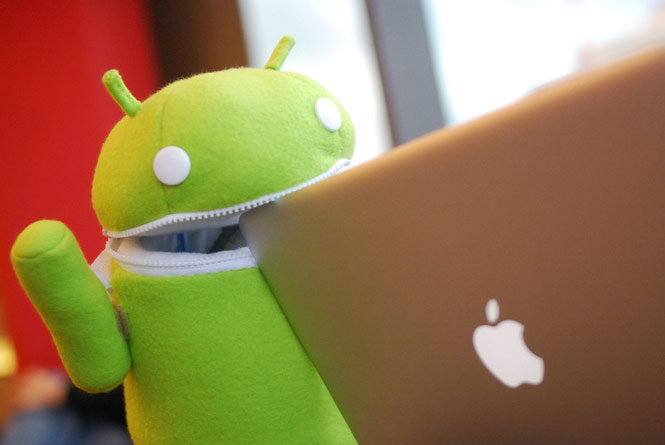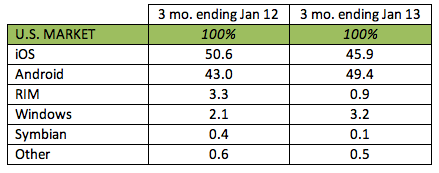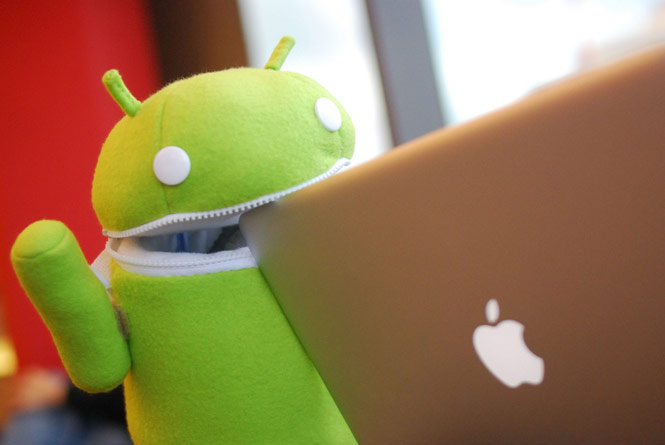 After just three months of iPhone supremacy, Android is back as the top-selling mobile operating system in the U.S. And those who want Apple to produce a cheaper iPhone will know exactly why.
After just three months of iPhone supremacy, Android is back as the top-selling mobile operating system in the U.S. And those who want Apple to produce a cheaper iPhone will know exactly why.
Price.
When iOS had the lead with 53.3 percent market share in the three months ending in October 2012, Apple and Android smartphones were about the same price, Kantar analyst Mary-Ann Parlato told me via email. But not in the three month period from October 2012 to January 2013.
“This latest period saw a significant price drop to $95 for Android, while iOS increased slightly to $146,” Parlato said.
The result?
Phones running Android jumped to 49.4 percent of all smartphone sales in America, up 6.4 percent over the same period a year ago. iOS came in second, of course, with 45.9 percent. Interestingly, Windows Phone was the only other mobile operating system to grow, adding over a percentage point of market share, while BlackBerry dropped to only a third of its previous share, to only .9 percent of the market.

The big difference between the August-October 2012 period and the November 2012 to January 2013 period was wireless carrier Sprint, which went from an even split of Android/iOS sales to a 72 percent Android landslide. One big driver was a price drop on the Samsung Galaxy S III from $199 to $99 during the holiday period.
Kantar’s consumer panel, where the data for this report originates, is the “largest continuous consumer research mobile phone panel of its kind in the world,” surveying more than 240,000 people annually to track mobile phone purchase and usage.
Ultimately, Apple still has an incredibly strong hold on the domestic market, with three of the top five selling smartphones in the country and a much more unified OS, device, and apps ecosystem than Android. And that’s clear when you look at what phones wireless carriers AT&T and Verizon are mostly selling:

But those who are calling for a cheaper — or, shall we say, less expensive — iPhone will find plenty to grind their axes on here. Apple could triple its market share in China, Morgan Stanley analyst Katy Huberty said recently, if it introduced an “iPhone mini.”
A cheaper iPhone would also help domestically, it appears.
And so the question really becomes: How crazy does Apple want to get? How much does the company that wants more than anything to produce the perfect product also want market share?
photo credit: laihiu via photopin cc


